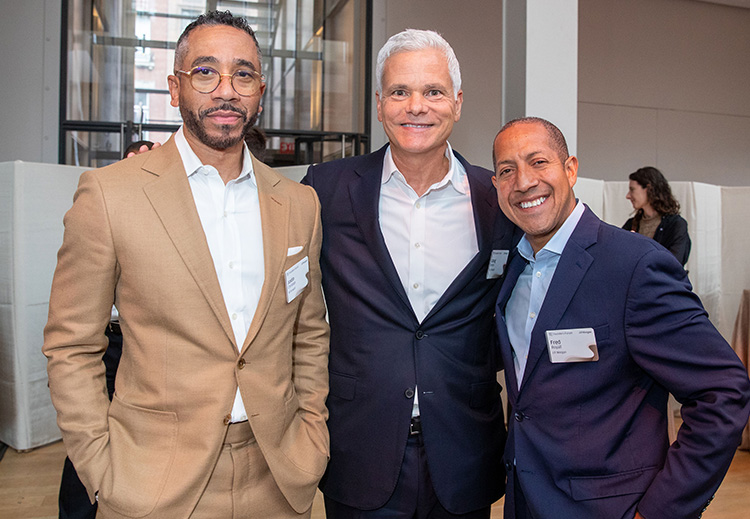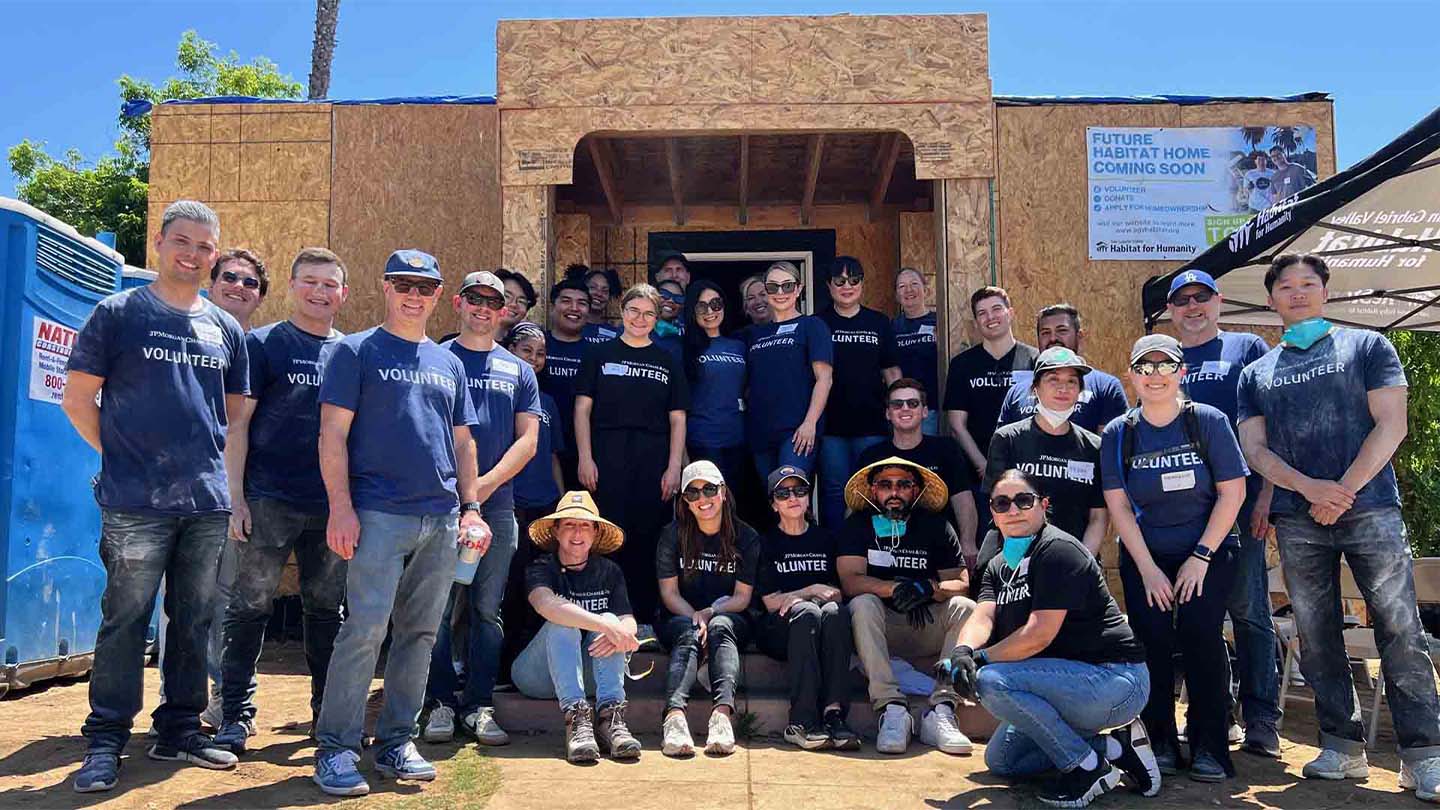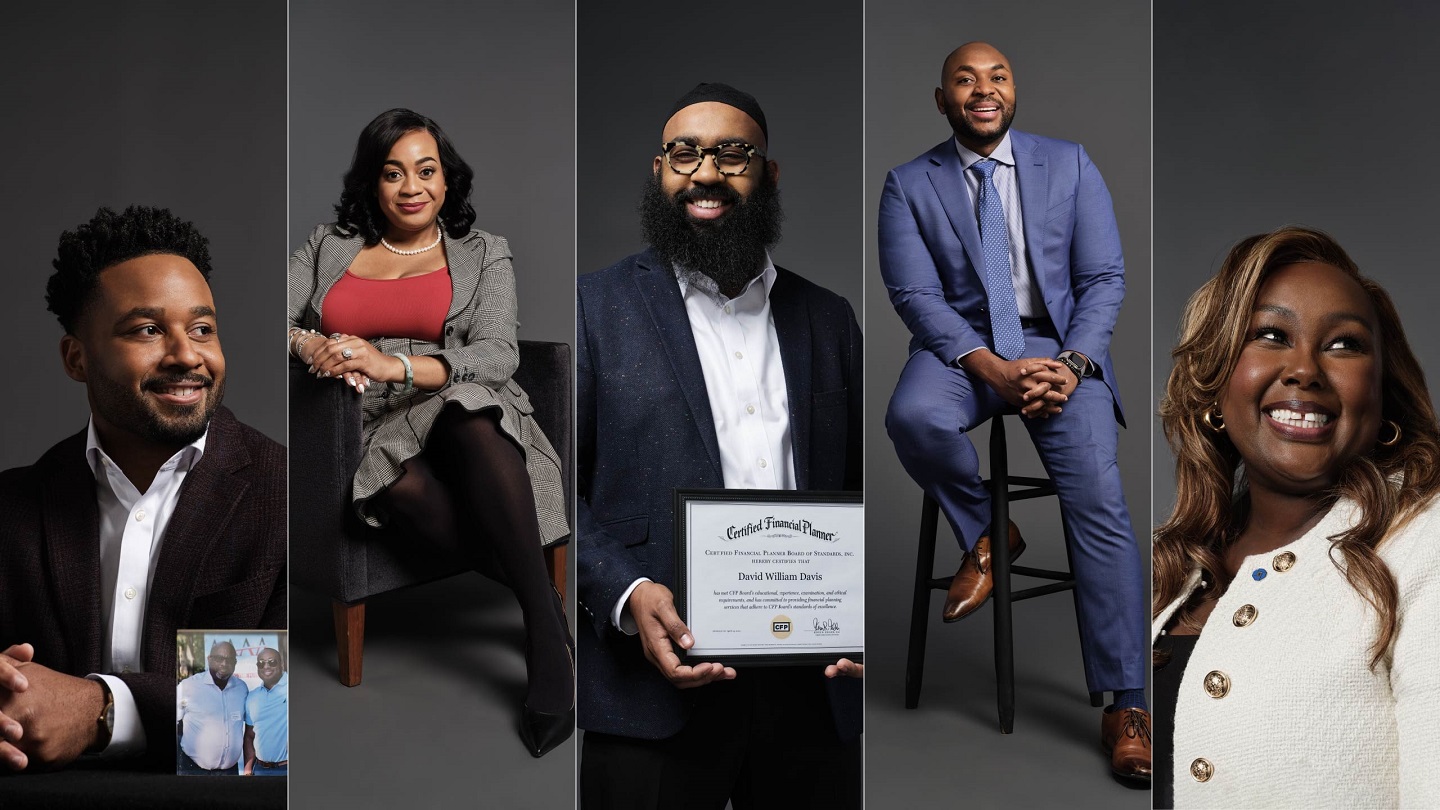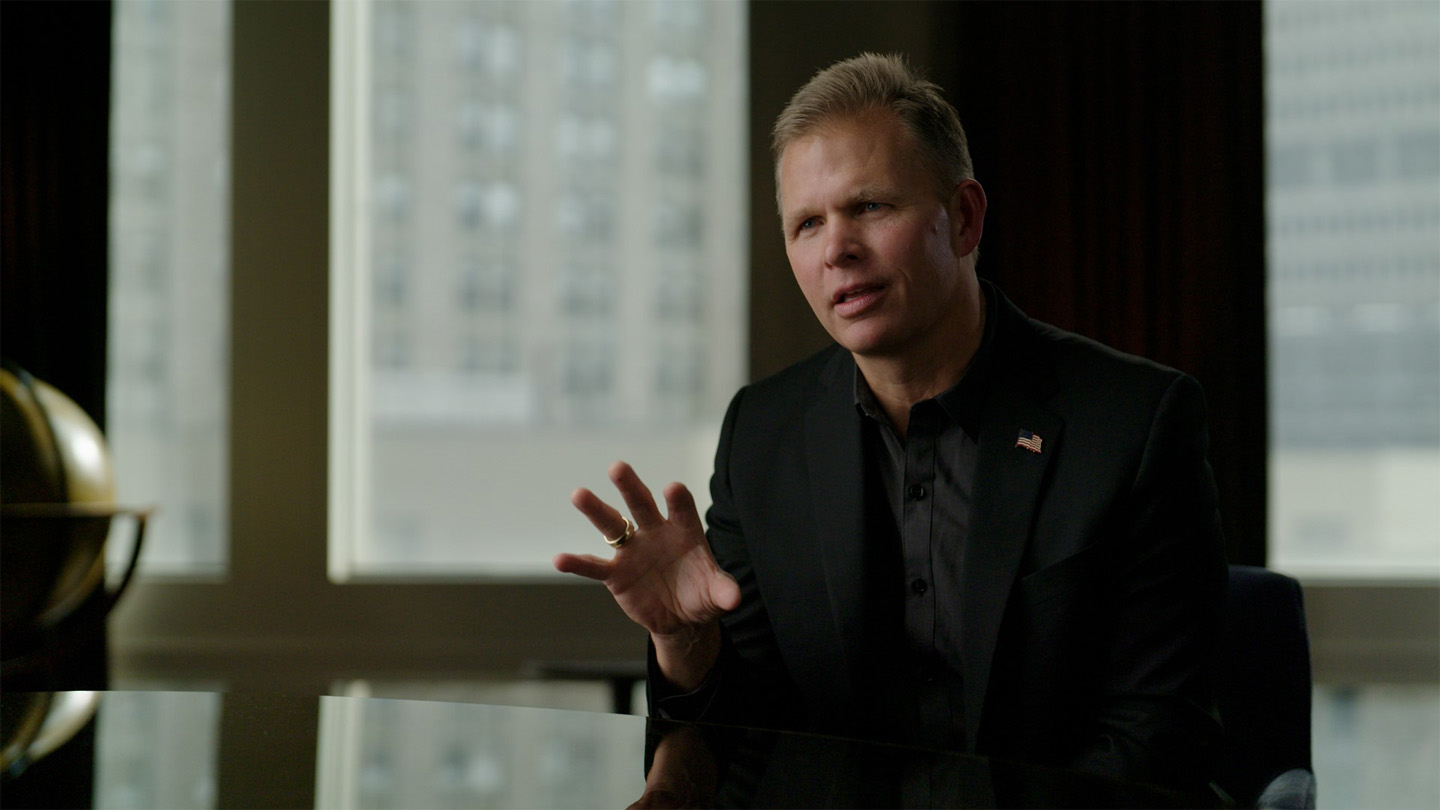
Launching a new business is never easy. We asked three accomplished business leaders to reflect on their entrepreneurial journeys. Frederick Royall III, National Head of Diverse Businesses for JPMorganChase Commercial Banking, also shared what he most often hears from business founders—and how JPMorganChase we can help.
Access to capital
Q: What is the No. 1 challenge diverse and underserved founders face when trying to build and grow their business?
Royall: The obvious one to start with is capital, and that the future opportunity is greater than the existing capital that the business has. Identifying where to source that capital is equally challenging.
Joe Blackstone, founder and president, Blackstone Consulting: I read something years ago that said if you have 100 [new] businesses, 90 of them will fail in the first year—and eight of the remaining 10 will fail in the second year. It’s not because they don’t work hard or don’t have a good product or service. It’s because they run out of money.
Q: How did you fund your business in the beginning?
Blackstone: When I first started, I had a friend in the banking business. He essentially said, “I’m going to give you a $25,000 line of credit, when you really aren’t entitled to anything.”
I gave him monthly financials. There was nothing to them. I’d say, “Look, I’m telling you and building a case why I am going to be a good financial risk from now and into the future.” That $25,000 eventually became $50,000, became $100,000, became a half million. And now, it’s moved to $75 million.
Justin Christian, President/CEO, BCforward: When I founded BCforward, I didn’t have any external capital. At the time, I didn’t even really know the concept of going to a bank and getting financing.
I did at some point need to venture out and establish some banking relationships. There were a lot of doors knocked on—and a lot of odd questions that didn’t seem to make a lot of sense to me. The offers felt like, “Hey, if you give us $100,000, we’ll give you $100,000 back.”
Eventually we found a bank that did give us some initial cash, which allowed us to hire a staff, make payroll, take on new accounts—and start to slowly but steadily grow the organization.
Miko Branch, Co-founder and CEO, Miss Jessie’s: When my sister and I were building our haircare business, we didn't have the sophistication or the contacts to get support. So we did it the old-fashioned way, and we bootstrapped.
Q: How did you overcome the challenges associated with securing capital?
Christian: Most Black businesses start off very similar to mine. The bootstrap mentality is all they really know. That’s our lived experience. But there are other capitalization models that could springboard your growth and take it to a whole other dimension.
I’m still trying to get an appreciation for the best ways to leverage this capital I now have access to, to help me get to the next level. And the same tricks and techniques I used over the last 25 years are certainly not going to be the tools I’m going to need for the next 25 years.
Branch: Though I would have loved to have had access to cash in the early days, it just didn’t happen that way.
I would encourage other diverse founders to focus on building your business so you create a valuable profile for yourself. Then, by the time you interface with a bank like JPMorganChase, they’re looking at you and handling you like an important customer. They’re pairing you with products appropriate for your business, versus you putting yourself in a position where you’re asking the bank for something. You need the track record first.
Networking and scaling for growth
Q: What key lessons did you learn as you were scaling your business?
Branch: My sister and I used all our profits to build the business. We shared clothes, we took in a roommate, and we kept expenses low while putting a value and higher ticket price on our services and products. With that approach, we were able to grow capital.
But one of the things we learned very early on was not to grow too big, too soon. We learned some painful lessons after moving from a two-chair salon to a six-chair salon. It was too big, too expensive, and we didn’t have the clientele. Since then, our approach has been to grow at a manageable pace.
Christian: There are several different inflection points you hit where something fundamentally changes. During those initial stages for me, it was, “OK, can I make more money than I spend?” It’s about opportunities and connections and networks. Without those, it can make growing that much more challenging.
Q: Why is it important to create environments and networks for Black founders?
Royall: In conversations with Black business leaders, we found they want the interaction and networking, the ability to connect with like-minded professionals, and the ability to learn from each other.

Justin Christian (left), president/CEO of BCforward, Doug Petno, Co-CEO JPMorganChase Commercial and Investment Banking, and Frederick Royall III, National Head of Diverse Businesses.
Christian: So much of business happens behind the scenes. An executive calls a friend of his and says, “Hey, I’ve got an opportunity over here. You should come in on it.” And a lot of times, maybe we aren’t necessarily a part of that circle. The ability to break into some of those networks or create our own can put a huge amount of downward pressure on businesses.
Business resiliency and leadership
Q. How do you meet short-term goals while making progress toward your long-term vision?
Blackstone: My biggest challenge as president of the company is to balance resources with growth. Right now, we’re in hyper-growth mode. I have every single one of my departments grabbing me and screaming, “I need, I need, I need.”
I think my job is like being an air traffic controller. I need to be a really good listener, and then I need to actually take in what I hear.
Christian: There’s this whole concept of working in the business versus working on the business. As CEO, I find myself getting pulled into tactical operations. You quickly learn you can’t do everything yourself. You’ve got to lean on a team to help so you can pull yourself out of some of those day-to-day items and really focus on the long-term things that will help the business be sustainable.
Q: What advice would you give the next generation of diverse founders?
Christian: There’s no one strategy for success. It doesn’t mean you have to have a billion-dollar business. You can be a one-man shop and be extremely successful if you’re happy and feel fulfilled in what you’re doing. The folks who endure recognize the up-and-down nature of running a business.
Blackstone: Don’t lowball just to gain business. Don’t try to sell something you’re not really capable of doing or that’s on the fringe of your capacity. Because then you may not be able to provide the quality of service you need to get the next job and do that one correctly.
Our commitment to your community
JPMorganChase supports companies from all backgrounds, including diverse-led businesses. We’re providing resources and investments that help businesses overcome challenges and grow more resilient. Learn more here.
For more inspiring and insightful founder stories, watch Fred Royall’s “Thriving in uncertain times” conversations with Travis Mack and Janice Bryant Howroyd.
JPMorgan Chase Bank, N.A. Member FDIC. Visit jpmorgan.com/commercial-banking/legal-disclaimer for disclosures and disclaimers related to this content.







